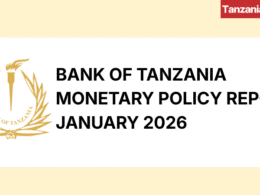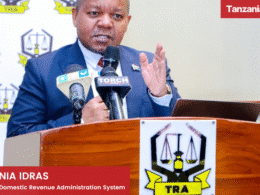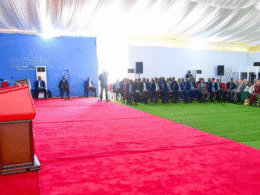On 20th December 2022, the World Bank (WB) approved two financing programs for Tanzania totaling USD 775 million.
The new WB’s International Development Association (IDA) financing consists of a USD 500 million credit for the first Tanzania Inclusive and Resilient Growth Development Policy Financing and a USD 250 million credit plus an additional USD 25 million grant for the Tanzania Maternal and Child Health Investment Program.
The Tanzania Inclusive and Resilient Growth Development Policy Financing is the first in a series of two operations to support policy and institutional reforms that are critical to unleashing private sector growth, increasing transparency, boosting Tanzania’s risk management capacity, and building economic resilience against future shocks driven by climate change and other external factors.
“The World Bank is putting its full support behind policies aimed to ensure a robust private sector-led recovery that will help the country reach its economic potential, while also making growth more inclusive and resilient to future shocks,” said Nathan Belete, World Bank Country Director for Tanzania.
The second financing package of USD 275 million for the Tanzania Maternal and Child Health Investment Program will help the country improve the quality of essential healthcare services and scale up delivery.
It includes a USD 250 million Program for Results (PforR) for Tanzania mainland and a USD 25 million Investment Project Financing (IPF) project for Zanzibar.
The program is additionally funded by a grant of $25 million from the Global Financing Facility for Women, Children, and Adolescents.
The primary beneficiaries of this financing are women of reproductive age, adolescents, and children under the age of five, including newborns and infants (about 40% of the total population) who will benefit from a package of high-impact quality, and cost-effective reproductive, maternal, newborn, child, adolescent health, and nutrition (RMNCAH-N) interventions.
“Over the past two decades, Tanzania has significantly reduced the disease burden and improved health outcomes due to improvements in the control of major communicable diseases and vaccine-preventable diseases,” said Amit Dar, World Bank Director for Strategy and Operations for Eastern and Southern Africa.
“With this new financing, we hope to accelerate progress in areas where outcomes have been lagging in regard to high maternal mortality, high fertility rates, elevated newborn mortalities, and high rates of malnutrition.”
World Bank Support to Tanzania
The World Bank supports Tanzania’s growth through policy analysis, grants, and credits, with a focus on infrastructure and the private sector.
The Bank supports Tanzania’s policy and institutional reforms that are critical for strengthening the role of the private sector in economic recovery, increasing the transparency and risk management capacity of the Tanzanian public sector, and building economic resilience against future shocks driven by climate change and other external factors.











